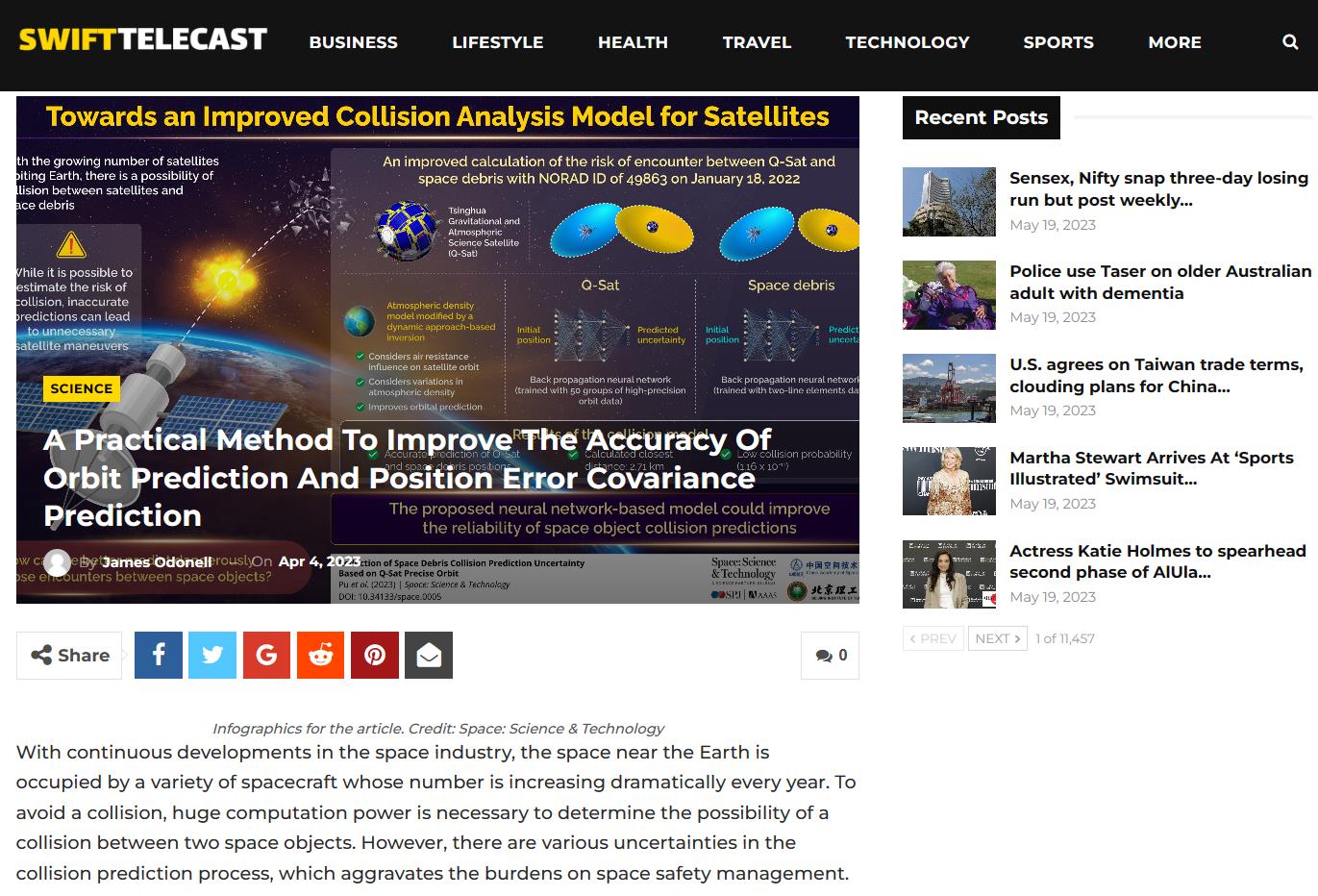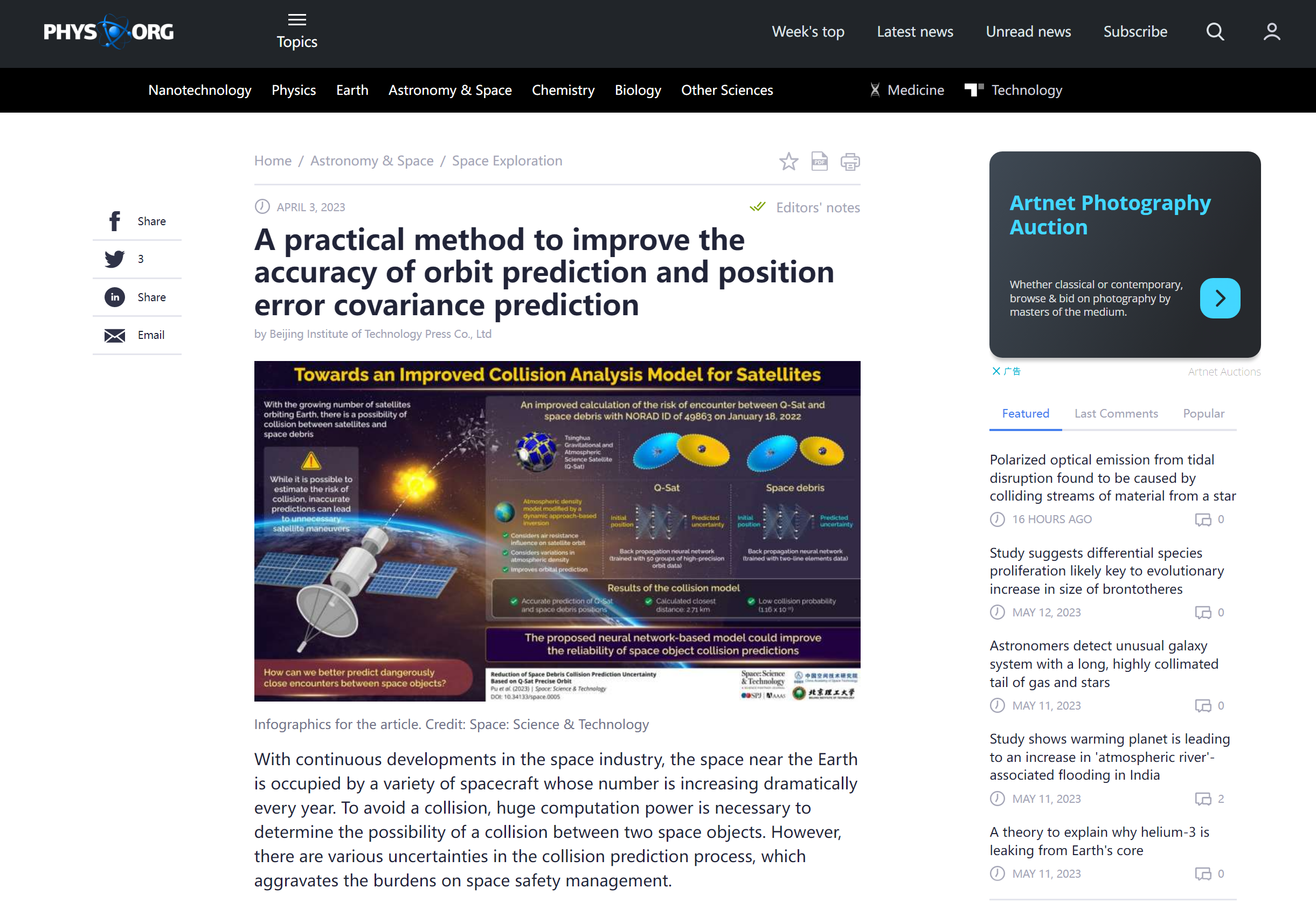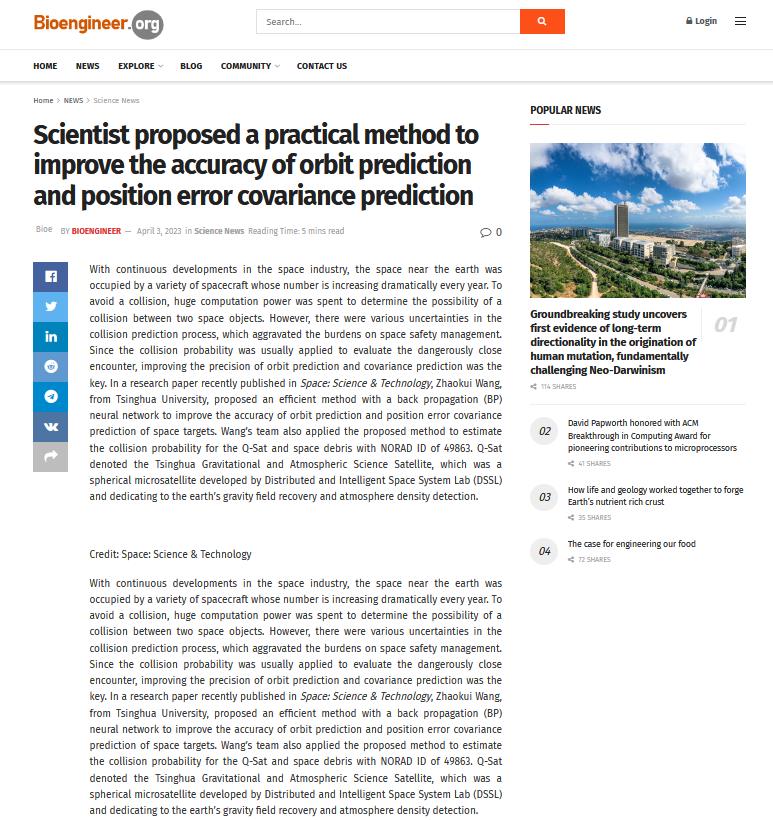Our latest research progress was published in the journal 'Space: Science & Technology' on January 11, 2023, titled 'Reduction of Space Debris Collision Prediction Uncertainty Based on Q-Sat Precise Orbit'( https://spj.science.org/doi/10.34133/space.0005 ). Huang Pu, Dr. Wen Guangwei, Cai Yingkai, and Professor. Wang Zhaokui authored this significant study. Since its publication, the paper has attracted wide attention and has been reported by more than 80 media outlets worldwide.
The proliferation of space debris poses a substantial threat to the safety of spacecraft and satellites orbiting Earth. Accurate prediction of space debris trajectories and the reduction of collision uncertainties are paramount in ensuring space safety. The focus of this research is to employ the Q-Sat precise orbit to mitigate collision prediction uncertainties and enhance the efficiency and feasibility of space debris management.
Through meticulous analysis and modeling of the Q-Sat precise orbit, the researchers conducted a series of experiments and simulations to assess the accuracy of space debris collision predictions. Our findings demonstrate that the methodology based on the Q-Sat precise orbit significantly reduces the uncertainties associated with collision prediction, thereby providing more reliable collision forecasts.
The breakthrough findings of this study have garnered considerable attention from both domestic and international space communities. Esteemed experts and scholars have commended the research, recognizing the significance of the Q-Sat precise orbit methodology in the field of space debris management. They note that this study provides novel insights and methods for addressing the challenges posed by space debris.



Space Daily:
https://www.spacedaily.com/reports/Improving_the_accuracy_of_orbit_prediction_and_position_error_covariance_prediction_999.html
Swift Telecast:
https://swifttelecast.com/a-practical-method-to-improve-the-accuracy-of-orbit-prediction-and-position-error-covariance-prediction/
Phys.Org :
https://phys.org/news/2023-04-method-accuracy-orbit-position-error.html
Bioengineer.Org:
https://bioengineer.org/scientist-proposed-a-practical-method-to-improve-the-accuracy-of-orbit-prediction-and-position-error-covariance-prediction/
Cite our paper as: Pu Huang, Guangwei Wen, Yingkai Cai, Zhaokui Wang. Reduction of Space Debris Collision Prediction Uncertainty Based on Q-Sat Precise Orbit. Space Sci Technol. 2023:3;0005. DOI:10.34133/space.0005